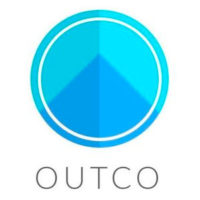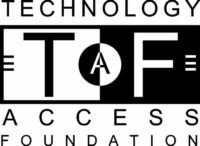This week’s article was originally published here by our partners at the Tombolo Institute at Bellevue College.
As U.S. technology companies began to expand into global markets and build multicultural teams, they came to realize that having employees with good soft skills was critical to their success. It may come as a surprise that the more technology advances and permeates everyday life, the more crucial social and emotional skills are to large technology employers.
Yet many students who study diligently to develop their hard skills are unaware that their soft skills will undergo as much scrutiny by a hiring manager as their coding capabilities. A McKinsey & Company Quarterly Report reveals that “HR professionals report difficulty recruiting candidates who have the necessary soft skills for an automating world.” This presents an unexpected causation: An increasingly automated world is fueling an increase in the demand for soft skills.
To get practical, real-world insights into this issue, we spoke with Tombolo Institute at Bellevue College instructor Joydeep Hazra about the importance of soft skills for students with a career path in technology. Joydeep is the regional lead of Product Program Management, North America, for Nokia Corporation. He has been with the Finnish telecom giant for more than 20 years.
At Tombolo Institute, he teaches courses in leadership and cross-cultural identity management. In the fall of 2020, he is scheduled to teach product and program management fundamentals. He is also an industry advisory council member for the Tombolo Institute.
Interviewer: Why don’t we start off with your definition of soft skills?
Joydeep Hazra: In my industry, which is predominantly telecom-driven, we interact with a lot of people. There’s the word “communication” in “telecom” – telecommunication – so I take the word “communication” quite seriously. And when I interpret that in the context of a multicultural, cross-functional, cross-demand, diverse team, the soft skill aspect becomes pretty important, because effective communication is the binding glue for the entire team.
Because not everyone has the same fluency of one common language, they definitely do have something that they understand, like discipline, interaction, honesty, punctuality. All those skills, even though they’re not hard skills, they come from basic human nature.
And all these soft skills, when you put them together, are important because they keep our team together. And when we function well as a team, that keeps us pushing toward a common goal. That keeps us together when things go wrong. Therefore, soft skills are directly related to teamwork. They are something that keeps a team cohesive. That is critical because teams have to flow between each other.
Interviewer: Which soft skills are most in demand in the tech industry?
Joydeep Hazra: On my team, the first thing that comes to mind is an understanding of discipline, which fosters respect within our team. That keeps us coherent and sticking to a common goal. Our team is composed of people from diverse backgrounds and cultures, so it is imperative that there is an understanding and sensitivity to cultural limitations and strengths. A well-functioning team is attuned to cross-cultural and cross-functional communication issues. So soft skills loop back around the team members, keeping [the team] together and nourished, like blood flowing in our bodies.
Interviewer: Resiliency is also mentioned as an important soft skill.
Joydeep Hazra: Yes. Resiliency is important because it is tied to good communications, which makes a team coherent. When a team has developed good communications that foster respect and discipline, it is more resilient when there are setbacks. Resiliency is a key part of being agile, which is an attribute that is crucial for success in the tech industry. Organizations that are not agile typically suffer from poor soft skills.
Interviewer: When did the inflection point occur that made the tech industry realize soft skills were important?
Joydeep Hazra: There was a time when the organizational culture in most American tech companies was homogenous. Employees rarely had to interact in the workplace with someone from a different cultural background. But when tech companies started going abroad, globalizing, they had to look for suppliers and they had to figure out how to sell to a global market. To compete, companies began to deploy remote teams around the world. The workplace rapidly began to diversify. Tech organizations came to the startling realization that: Wow, the world is different than what we experience in Seattle or in Austin or in Silicon Valley. People from other cultures think and communicate differently. A simple “yes” does not simply mean “yes”; it means “maybe.” And a simple “no” does not mean “no” as we understand it; it means, “Yeah, I’ll do it if you’re persistent.”
So all those different cross-cultural challenges became issues that management had to deal with. They started understanding that to get a culturally diverse, end-to-end team to work efficiently and productively, soft skills were pretty important.
Interviewer: It is interesting that most conversations about soft skills do not specifically address cross-cultural issues.
Joydeep Hazra: Right. Globalization has made soft skills and cross-cultural communication a vital part of organizational success.
I was working in Europe for several years, and people thought: Oh, it’s Europe. English is widely spoken. But cultures across Europe are hardly the same. When you go from Scandinavia down to Greece, there’s a huge difference in people’s attitudes and cultural way of doing things, the way they handle work. Management was required to understand how to work differently with individuals in various parts of Europe. When organizations expanded from Europe to Asia, Africa and Latin America, the situation became even more complex. It is good soft skills that can save organizations from chaos.
Interviewer: Can you describe a specific scenario from your personal experience when a lack of soft skills in the workplace created an impediment to organizational goals?
Joydeep Hazra: That’s a pretty interesting question. In my job with Nokia in Seattle, I handle a lot of diverse teams from all across the world. There is a tendency in tech companies to hire these super-intelligent alpha engineers who come in with the promise of solving everything very quickly. But what happens is when these types of people come into a department, they try to solve everything on their own and take all the credit. They don’t integrate with the team, and so other people become disengaged and feel as if they’ve lost their value to the team and to the organization. When the team becomes disengaged, important projects become unsustainable and the likelihood of failure increases. When things go sideways, the alpha engineer typically gets frustrated, burns out, and quits. Then it becomes extremely difficult to get everybody else back on board and function as a cohesive team again.
My experience in tech is that people who are exceptionally brilliant in hard skills often lack the emotional quotient, the EQ traits, that are essential in a team environment. A high IQ does not guarantee a high EQ. A balance is needed. I try to avoid having those people on my teams. I’m better off with a B+ team that is persistent, that is resilient, and is cohesive versus somebody who is A+ or A++ but burns out after one project.
Interviewer: Have you found that soft skills training can help solve these types of problems?
Joydeep Hazra: It is more difficult to train someone in soft skills than hard skills. The trainable people are the ones who want to grow not only as an engineer or a technician but also in terms of being a team leader.
Leaders come from all levels within organizations. They do not have to be in an executive suite. They can come from anywhere really. Because, at the end of the day, a leader is someone the whole team looks up to. I think their growth comes as the result of coaching versus training. I say that because if somebody doesn’t want to be trained, there’s not much we can do. But if somebody is interested in moving forward and growing as a person, they can be mentored and nurtured along. And this type of person becomes a good mentor to others. And that’s a valuable type of leadership.
Interviewer: How does your organization evaluate a candidate for soft skills?
Joydeep Hazra: I can answer that in two ways. One approach is pretty straightforward. When we are interviewing someone, we have this standard question we ask: “How do you rate yourself?” Often somebody who rates themselves highly on a scale of 1 to 5 – like 5 or 4 – we become a little bit skeptical. We tend to feel that this person is less interested in continuous learning. They may feel they know everything. We always prefer somebody who responds: “I’m somewhere around 3. I know this much, but I still think I have much more room to grow.” Because if somebody is not humble enough to understand that there’s a lot of stuff to learn, we immediately have a red flag.
Once people are hired, we will spend a couple of months just training people on these intercultural aspects. So, in my company, cross-cultural training is super-important. We consider it one of the top skills to foster with new hires, because in our company, you’ll be working with 15 to 16 different nationalities.
At Nokia, we have hundreds of customers throughout the world. Often, we send engineers from different research-and-development locations to different parts of the world. We have folks from Nigeria working in Atlanta. We have folks from Dallas working in the U.K. We have folks from the U.K. working in Thailand. One of the ways we assess people’s success is how fast they can integrate into a certain team domain, because we cannot predict where the next project or the next escalation will be. If we sign a multibillion-dollar contract somewhere in Japan, a lot of focus is placed there. Because the U.S. is leading in the adoption of 5G, there is a lot of focus here as well. Global market dynamics require us to see how fast we can ramp up a certain region, and soft skills play an important role in the success of those focused efforts.
Interviewer: Let’s talk about the teaching aspect of your career.
Joydeep Hazra: I teach at Bellevue College’s Tombolo Institute in continuing education. My students are people in different stages of their lives and careers. Some are professional people who are looking to advance their skills and knowledge, while others are looking to learn new skills for new career opportunities.
What I do to integrate aspects of soft skills into my classes is to ask students to talk about themselves beyond what they have stated on their resume. I assess their communication skills and their openness to new learning and tie that to how they will apply those soft skills in different professional situations. Sometimes during a management course we’ll have a panel discussion that ties in soft skills and how they relate to international strategy.
Interviewer: Do you find that most students are aware of the importance of soft skills as they go into the tech sector?
Joydeep Hazra: No, they are often blindsided by that. Usually they do not think about these things. They think about the books and the course curriculum. And they think quite a bit about, “If I can pass the test, I’m done.” And my point to them is: Once you pass your tests, that’s when your life begins. Then you’re exposed to an unknown world, an unknown team, and you don’t know who you’re going to work with. And then sometimes I encourage them to understand or at least learn about the team they’re going into versus trying to be the odd man out and wondering how come no one talks to them.
I also encourage my students to check out online resources. Prior to the COVID situation, I encouraged them to attend networking events like those put on by New Tech Northwest. They host tech block parties and seminars where people can meet other tech professionals and get a real-life perspective on what it takes to be successful in the tech industry. Since in-person meetups are no longer happening, New Tech’s founder, Brett Greene, is keeping the community alive by taking the event online. They have a good, strong following, and people like what they do.
Interviewer: How important is it that a person continues to enhance their soft skills as part of their lifelong learning?
Joydeep Hazra: Very important. If you look at our social landscape, diversity and inclusion is on everyone’s lips. And it’s not just lip service. At my company, I have to do certifications. I have to pass tests [to determine] whether I know enough about diversity and inclusion. It’s a mandatory part of my job. We are trained by our company to deal with a diverse workplace, how to be respectful of others, and how to interact with people whose perspective, culture, or orientation you may not be familiar with.
Interviewer: How would you describe your students’ relationship with Tombolo Institute at Bellevue College?
Joydeep Hazra: I definitely see a sense of pride among Bellevue College students. The school has had a very strong history and a very strong alumni foundation that invites people to come and study here. You have to realize that here in the greater Seattle area there are something like 27 regional community colleges. But so many choose Bellevue College because it is so well-respected among all the local educational institutions.
Interviewer: And what is it about the Bellevue brand that makes it stand out?
Joydeep Hazra: For one thing, being in the middle of Bellevue, they have a tremendous geographic advantage being so close to major employers like Amazon, Microsoft and Boeing. And Google has a huge campus close by in Kirkland. This proximity means they have relationships with those companies. Therefore, prospective students see that the college is right in the middle of this whole industrial ecosystem, in the heart of the tech sector, and that the college is connected. And all these different technology advancements, from augmented reality to satellite communication, are also happening here smack in the middle of the town.
The instructors at Bellevue are also a huge asset. Many, like myself, are working professionals who are committed to preparing the upcoming workforce. I get great satisfaction in helping people who are not privileged enough or rich enough to go to Harvard or Wharton but are exceptionally smart and have the drive and the attitude to succeed. We strive to help those students have a promising future. I think this is a great strength of Bellevue College. Our students learn from instructors who are also mentors, are connected to industry, and are committed to giving back to the community.
###
About Continuing Education at Bellevue College and Tombolo Institute
Bellevue College Continuing Education has officially split into two new entities. Tombolo Institute at Bellevue College will now offer our professional training courses in business, technology, healthcare and corporate training. Go to tomboloinstitute.com.































































































